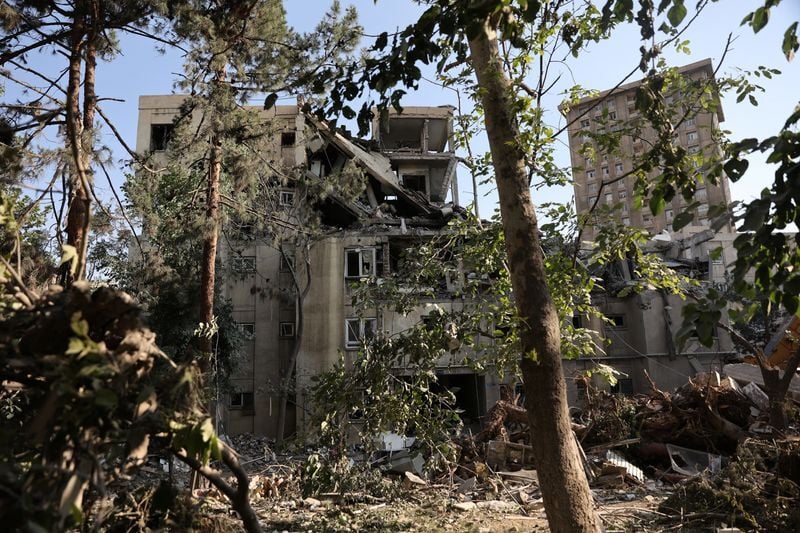As hostilities between Iran and Israel escalate into full-scale missile exchanges, the Government of India has begun shifting its citizens, particularly students, to safer locations within Iran, while coordinating with Tehran on possible evacuations through land routes.
Over 1,500 Indian students, most from Jammu and Kashmir, are currently stranded in Iranian cities like Tehran, Shiraz, and Qom—some of which have been directly affected by Israeli airstrikes. The Iranian government, while keeping its airspace closed, has officially announced that its land borders are open to foreign nationals. It has given India permission to organize ground evacuations through these borders.
“Given the current condition and the closure of the country’s airports, as well as the request of many political missions to transfer their diplomats and nationals abroad, we inform that all land borders are open for crossing,” Tehran said in an official statement. The Iranian Foreign Minister also “gave the green light to India’s diplomatic mission and extended help for the safe evacuation of diplomats and civilians.”
To coordinate the exits, Tehran has requested detailed information from the Indian side—including names, passport numbers, vehicle details, preferred border points, and travel timings. These are to be submitted to Iran’s General Protocol Department to facilitate organized border crossings.
EAM Confirms Relocation of Indian Students
In response to growing concerns, particularly among Kashmiri families, India’s Ministry of External Affairs said that “some Indian students in Iran were being relocated to safer places within the country” and noted that “other feasible options are also under examination.” The Embassy of India in Tehran is closely monitoring the crisis and has already begun facilitating the transfer of students to relatively safer zones.
Media reports confirmed that students from institutions such as Tehran University of Medical Sciences, Islamic Azad University Tehran Medical Sciences, and Iran University of Medical Sciences have begun moving out with the help of embassy-coordinated buses.
Meanwhile, in India, parents of students studying in Iran held demonstrations in Srinagar on Sunday, pleading for urgent evacuation. Many expressed fear that their children were in areas directly targeted in Israeli offensives. Among those voicing concern was Jammu and Kashmir Chief Minister Omar Abdullah, who stated on social media that he had spoken directly to External Affairs Minister S. Jaishankar. “Any decision to evacuate Indian students from Iran will be taken based on the ground situation keeping the safety & security of these students as the primary consideration,” Abdullah said, adding, “As a parent I assure all the concerned parents of my government’s close & continuous attention to this important developing situation.”
According to the Ministry of External Affairs, about 4,000 Indians currently reside in Iran, with half of them being students. Iranian universities are often a preferred option for Kashmiri students due to lower tuition costs and shared cultural values.
Indian Embassy Issues Advisory to Indian Nationals
The Indian Embassy in Tehran has issued multiple advisories for Indian nationals, asking them to avoid unnecessary travel, remain alert, and follow safety guidelines issued by local authorities. “Please remember, it is important not to panic, exercise due caution and maintain contact with the Embassy of India in Tehran,” the Embassy said in its advisory. A Google form has been shared via its X (formerly Twitter) account to collect details of those requiring assistance. Additionally, a dedicated Telegram group has been created for real-time updates. “Kindly note that this Telegram Link is ONLY for those Indian Nationals who are currently in Iran,” the Embassy added.
The crisis intensified after Israel launched “Operation Rising Lion,” a surprise military campaign on Friday morning that reportedly decimated Iran’s top military brass and struck sensitive nuclear facilities. Iran retaliated with a massive barrage of missiles targeting multiple Israeli cities, including Tel Aviv, where air raid sirens and interception blasts woke residents early Monday.
At least 91 people were injured in Israel after Iranian strikes in the country’s north and central regions. In retaliation, Israel’s military claimed it had struck command centers in Tehran operated by the Quds Force, the overseas arm of Iran’s Islamic Revolutionary Guard Corps. Defence Minister Israel Katz warned that “Tehran’s residents would pay the price” for Iranian attacks on civilians.
Internationally, leaders of the G7, including U.S. President Donald Trump, are meeting in Canada to assess the fallout from the conflict. Canada has begun consulting with other nations on whether to release a collective statement either calling for de-escalation or supporting Israel’s right to self-defense in light of Iran’s nuclear ambitions.
As the region braces for further escalation, the Indian government remains engaged with both Iranian officials and Indian nationals on the ground, exploring every possible option to ensure their safety.


